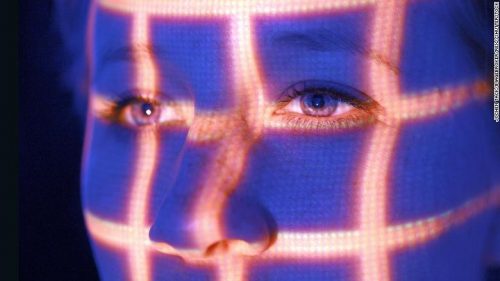According to a recent study, a new artificial intelligence (AI) technology can accurately identify rare genetic disorders using a photo of a patient’s face which could be of value in personalized medicine.

Named DeepGestalt, this new AI technology outperformed clinicians in identifying a range of syndromes in three trials. The study was published in the journal Nature Medicine.
According to the study, 8% of the population has diseases with key genetic components, and many have recognizable facial features. The DeepGestalt tool could identify, for example, Angelman syndrome with characteristic features such as a wide mouth or a protruding tongue.
Speaking about the technology, Yaron Gurovich, the chief technology officer at FDNA and lead researcher of the study, said: “It demonstrates how one can successfully apply state of the art algorithms, such as deep learning, to a challenging field where the available data is small, unbalanced in terms of available patients per condition, and where the need to support a large number of conditions is great.”
DeepGestalt was trained on 17,000 facial images of patients who had been diagnosed with over 200 distinct genetic maladies.
The deep learning algorithm outperformed clinicians in identifying a target syndrome among 502 chosen images, proposing a list of potential diseases and identifying the right one in its top 10 possibilities 91% of the time.
The AI also managed to outperform clinicians when it came to identifying subtypes in Noonan syndrome, achieving a 64% accuracy, compared to its human counterparts’ historical success rate of 20%.
Gurovich mentioned that one difficulty is the hard measure of the AI’s performance. He said: “The reason it is hard because there are not enough publicly available benchmarks.”
Jorge Cardoso, senior lecturer in artificial medical intelligence at the school of biomedical engineering and imaging sciences at King’s College London, expressed that the AI is “very interesting.”
“While several limitations still need to be addressed to ensure the proposed algorithms are robust in the hospital environment, clinically accurate, and applicable to different age groups and ethnic populations, the potential of AI in healthcare is immense,” said Cardoso.
Following the first layer of the AIWS 7-Layer Model—the set of ethical standards for AI developed by MDI—AI should not be able to put at risk the health and safety of humans. Therefore, we should always keep in mind the risk of malfunction in self-driving cars, and users’ safety needs to be guaranteed by developers.










